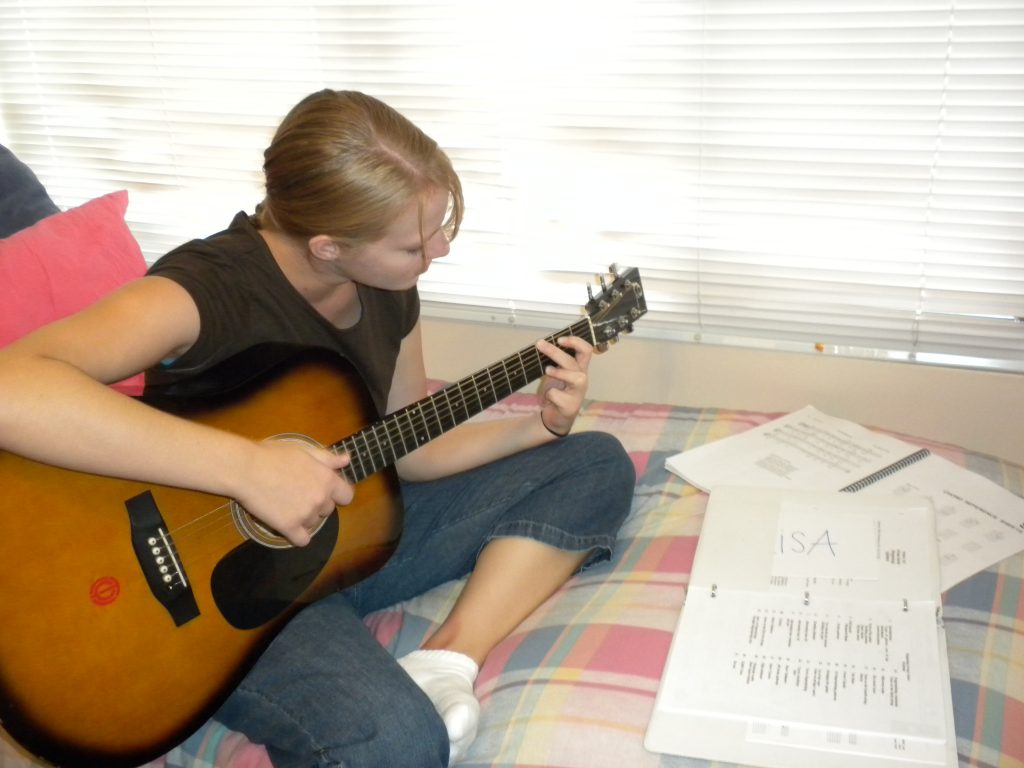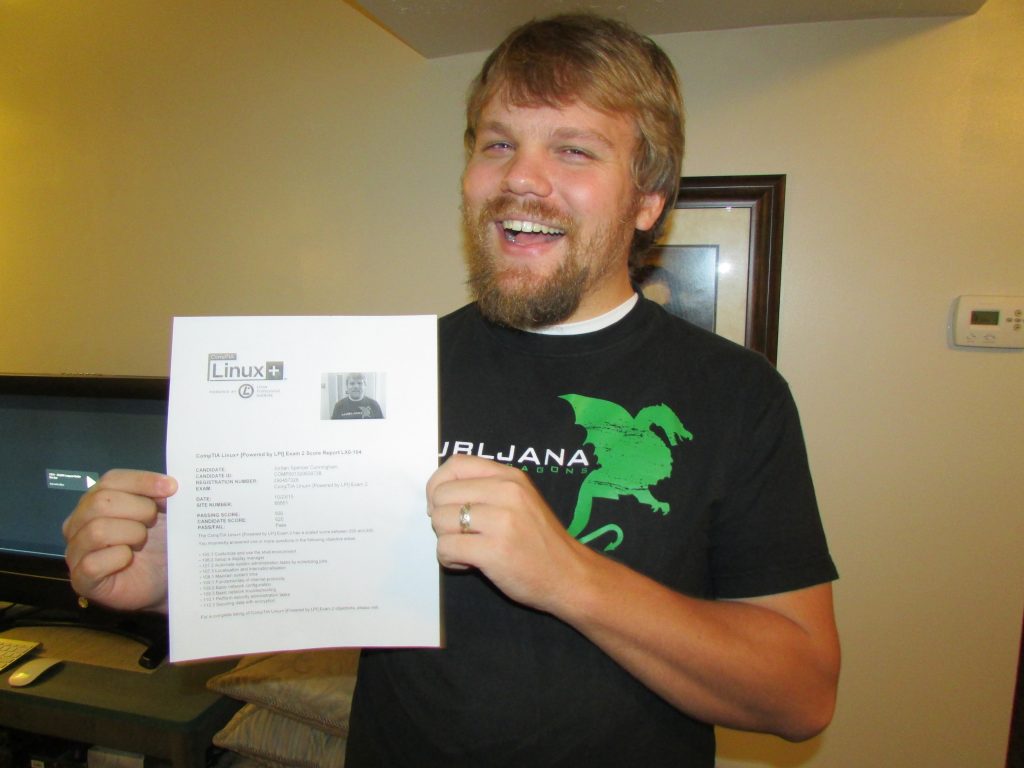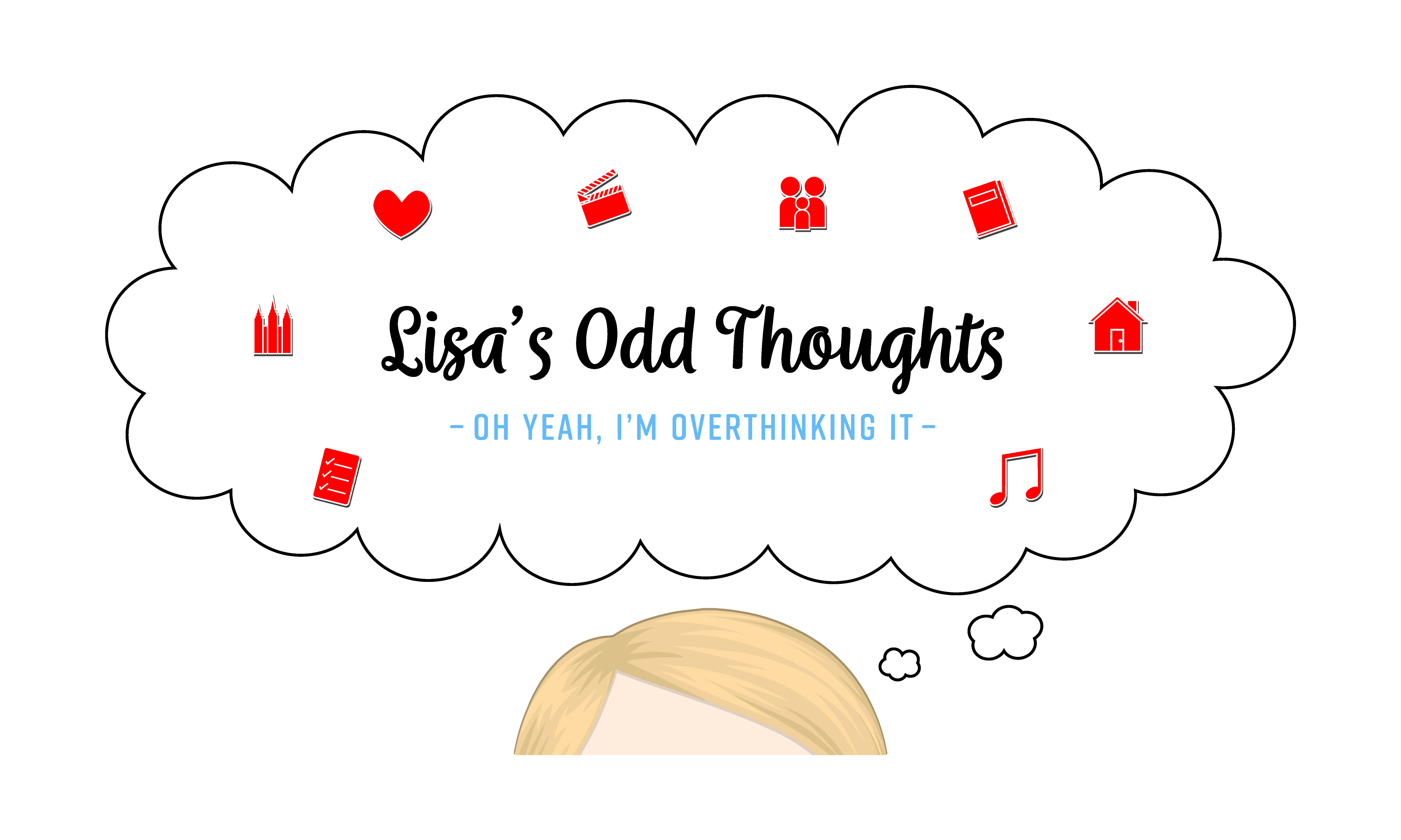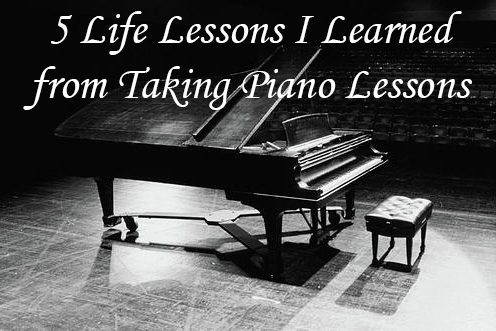I’m about as “normal” as could be. I grew up in a normal suburb with a normal family. And after I graduated high school I went to normal university and got a normal four-year degree, because that’s what was normal to do. It’s what was expected of me, both from my parents and from society.

Yes, in many ways I’m all about the normal.
But in other ways, being so “normal” has really limited me. Looking back I can see how damaging that “normal” can be.
Today, going to college is considered one of the most normal things a young person can do, but that doesn’t necessarily mean that it’s the best choice for you.
We could talk about all sorts of related issues, but specifically let’s talk about how financially damaging college can be. Let’s talk student loans.
According to the Federal Reserve, the average college debt owed by students is $32,731 (as of January 2021). Further, more than 600,000 student borrowers in the US owe over $200,000 in student loan debt (you can check my reference here).
Holy freaking cannoli, Batman! How did student loans get so out of control?

Young people all across the country have been sucked into these student loans thinking it was the normal thing to do, and our lovely ol’ government just kept shelling them out right and left.
And suddenly we’re facing an epidemic of young college graduates so steeped in student loan debt that they can’t financially do just about anything for a bulk of their lives. Buy a house? Start a business? I don’t think so, not when they’re paying $200,000 in student loans.
The topic of Student Loan Forgiveness has been a big political topic lately. But I just can’t believe that idiots in government are so preoccupied with forgiving current loans that they are totally blind to this alternate proposal: PREVENT FUTURE STUDENT DEBT. STOP GIVING STUDENT LOANS.
STOP giving out student loans. Period. Almost all student loans go through the government these days, and if the government doesn’t STOP making these loans, then the issue is just going to get worse and worse and worse for current and future generations, no matter how much current debt you forgive.
You might think that I’m just leaving those already drowning in loans out in the cold. Sure, prevent future debt, but what about current debt? Well, unfortunately that’s a bigger and much more in-depth conversation for another day. In the meantime, if you’re up to your eyeballs in student debt and don’t know what to do, I genuinely suggest you check out Dave Ramsey, whose financial programs and advice can help you manage your debt permanently. It’s not going to be easy, that’s for sure, but that’s even more reason why you should stand with me and PREVENT future student loan debt for everyone else.
STOP the madness. STOP giving out student loans. STOP leaving young people in financial ruin.
But that’s government for you.
Instead I’m here today to talk to high schoolers, those who are on the precipice of adulthood and happily looking forward to their bright futures.
You haven’t started college yet and you haven’t taken out any loans. So before you jump onto that burning ship just because it’s the “normal” thing to do, I beg of you to please read on and find out what you actually need to know about college in this day and age and how you can successfully graduate WITHOUT drowning in student loan debt for the rest of your life.
Prevention, prevention, prevention. That’s the goal for today.
Let me also throw in a disclaimer to start here. You might read this article and think that I hated my entire college experience and that I totally regret getting my degree. You couldn’t be further from the truth! I LOVED going to college and I loved the awesome things I got to do! I met a lot of people, I had a lot of fun adventures, I took plenty of classes that I loved and that reshaped me for the better, and best of all I even studied abroad for a summer in London, none of which would have happened for me had I skipped out on my college degree.
But I wasn’t very financially intelligent. I wasted a lot of money moseying around not having a real plan. I dilly-dallied through college and while I only graduated with a couple thousand dollars of student loan debt (which is considerably better than the average $32k), it still kills me that I could have avoided even that had I used a little sense.
Mostly I wish that I’d read this article myself as a senior in high school. Instead I just blindly plunged forward with no goals, plan, or financial wisdom because it’s what I thought was “normal.” If someone, anyone, had told me that slowing down and maybe taking a year or two off of school to figure my life out was not only an option but also perfectly acceptable, oh wow how that might have changed so much for me.
So that’s what I want to share here today. I want you to have the best, most fulfilling, and most useful college experience possible with minimum waste. Learn from other people’s mistakes, namely mine, and use it to your benefit.
So let’s get started.
Your Parent’s Information is Outdated
Please don’t read more into this than I intend.
I’m NOT saying that your parents are stupid, worthless, or ignorant. I’m NOT saying that their experiences and wisdom have nothing to offer.
On the contrary, please reach out to your parents (or other adult mentors, like me writing this blog post!) for their expertise. They’ve been successful adults for decades now, not to mention that they’ve now raised a soon-to-be successful young adult. Trust their wisdom and trust the hard lessons that they’ve learned along the way.
However, if your parents did go to college then most likely it was several decades ago, like in the 80’s or 90’s.
College has changed drastically since your parents graduated, and it keeps changing faster and faster with new technological developments. I graduated from college a mere seven years ago and already things have changed since even I was there, all due to technology.
It’s comparable to when your grandparents tell you that to get a job all you have to do is march into a store, ask to see a manager, and BOOM! Now you’ve got the job!
That’s how it used to be back in your parents’ and grandparents’ days, before the days of the internet. A store would put a “Help Wanted” sign in the window, you’d walk in and ask about it, and badda bing badda boom, you’d walk out with a job.
But if you followed that advice today in 2021, simply walked into a store and asked for a job, you would most likely not find the same success, not at all. They would tell you to apply online and then probably think you’re really weird for not doing so in the first place.
It’s all about the internet these days, and so finding a job is a totally different experience now than it was even just a few decades ago.
The same applies to college. Your parents might give you some advice such as, “Go talk to a counselor to find out what kind of major you want,” or something like that. Well that’s how college used to be for them.
Again, it’s all about the internet these days, and so college is also a totally different world than it used to be. And let me tell you this: you absolutely do not need to see a counselor until you actually need their signature on your graduation application. Everything they could possibly tell you is now freely accessible online. Don’t waste your time and don’t waste theirs by meeting with them in the way your parents suggest.
Again, I’m not saying to toss your parents or grandparents out in the gutter and tell them that they’re stupid or out of touch. They’re not stupid and they’re not out of touch, they are simply trying to navigate the difficult and everchanging world of college, same as you, but with outdated information. So go easy on them.
College is No Longer About “The Experience”
Speaking of parents, I hear a lot of parents say that they want their kid to go to college for “the experience.”
Let’s be careful to define “the experience” though. To most of the world, “the college experience” involves wild parties, lots of drinking, and doing outrageous things for four years.
However, I’m not talking about that kind of experience at all, and neither are the parents I’m referring to.
The parents who say they want their kid to have “the college experience” actually mean this: they want their teenager to experience adulthood, to live away from home, to handle difficult roommates, to manage their money, and to be wholly responsible for themselves.
Basically these parents want their obnoxious, know-it-all teenagers to have a healthy dose of reality.
And I get that. It’s very important for parents to not only prepare their kids for adulthood, but to actually send them out into the world to be adults. No parent wants their kid to become that bad stereotype of the unemployed 30-year-old bumming it in Mommy’s basement.
And college used to be a great opportunity for Little Tommy to get out into the world and learn to become Big Thomas, a responsible grownup.
But remember the goal here today: we’re preventing devastating student loans, right?
College, unfortunately, shouldn’t solely be about that experience anymore. It’s too darn expensive for Little Tommy to go blow four years partying and goofing off with the hope that he might mature into Big Thomas one day.
Do not waste your money or time merely chasing this “experience.”
But the good news is this: this maturing-reality-check experience that parents so desperately want for their kids is still totally achievable and affordable.
Just move out of your parents’ house.
It’s that simple.
Now don’t be financially unwise here and don’t blow through your money on rent that you can’t afford. I mean specifically that you should get a job and move out of your parents’ house.
Live with roommates. Be responsible. Manage your money. Wash your own laundry. Take care of your car. Do all those adult things that your parents want you to. Grow up. Be an adult. Have that experience…
…while you’re actually working and paying for that experience, not while college is sucking you dry and destroying your financial future.
Please don’t conflate what I’m saying here. I’m NOT saying that you shouldn’t ever move out to go to college. Moving out for college can be a wonderful time of growth and independence! But if your sole purpose for going to college is simply for that “experience” then I highly suggest you revisit your reasons for doing so. If that “experience” is all you want, then get a job and an apartment.
Having that “college experience” might be one reason you want to go to college, but it shouldn’t be the only reason, let alone the first reason. And on a similar note…
College is No Longer the Place to “Discover” Yourself; Go with a Specific Career Already in Mind
Back in your parents’ day, college used to be a great time of exploration and self-discovery, not only in the learning-to-be-an-adult kind of way that we discussed above, but also in a “I’m going to figure out what I want to do with my life” kind of way.
Kids used to go into college thinking that they would try a bunch of different classes, dip their toes into a variety of different fields, sample a smorgasbord or fun hobbies or interests, and hopefully along the way discover their true passion in life.
I’m here to squash that dream.
College is NOT the place to discover your passion. Heck, college is no longer the place to even pursue your passions.
College is now an investment for your future career. Period. Or at least it should be if you’re smart about it.
Now before you chalk me up as a complete killjoy, I beg you to read forward to my next point. I indeed do believe in discovering your passion and purpose in life, but just not at college. Not anymore.
Remember, college tuition has skyrocketed in the past few decades, and it just keeps going up and up and up. You can’t afford to “discover” yourself for $200,000.
That’s why I suggest you go to college with a specific career in mind. Notice that I said “CAREER” not just “MAJOR.” Those are two different things.
If you don’t know what career you want to pursue, then don’t go to college… yet.
This is still a great time of your life to try new things and dip your toes into the career world to see what sparks an interest.
The norm used to be that you’d graduate college and then start looking for jobs. I’m here with the radical notion that you come at this from the completely opposite approach: look for a career first and then get a college degree that will springboard you into that desired field.
Obviously start with the basic, “What do you want to be when you grow up?” question. Then research companies that hire that sort of position.
Even if you’re not sure about this answer, I still suggest finding some companies that you’d be interested in working for. Either you appreciate their positive impact on the world, are drawn to their workplace environment, or are passionate about their work. Whatever!
Better yet, get a job with this dream company of yours, even an entry-level job. You might find that this company isn’t so dreamy after all, or you might love everything about it.
If you think you want to try nursing, get a receptionist job at a doctor’s office or a hospital. If you think you want to try IT work, then work the phones for an IT support company. If you think you want to try teaching, then get a job as an aide at a school.
Note that this will be an entry-level job, of course, so don’t expect it to be all glitz and glam from the get-go. In fact, don’t expect any job, no matter your entry status, to be all glitz and glam all the time.
Remember, you’re on your path of “discovery” here, so work hard, make friends, enjoy yourself, and decide if this career is really the thing you’re passionate enough about to pursue.
THEN go to college with that specific career in mind.
Having that specific career in mind will streamline your college experience. And better yet, you’ll already have your foot in the door of your chosen career field and most likely have a network of former employers and coworkers for after you graduate.
And the best part? You’ve been working and making money through all of this self discovery, rather than raking up student loan debt.
I’m giving you this advice based on personal experience because I did this the exactly wrong way.
I had no idea what I wanted to be when I grew up. I honestly didn’t. Through high school I fluctuated between just about any and every career path you could think of. But do you want to know the only one that stuck? Being a stay-at-home mom, and that’s exactly what I’m doing and I love it.
But obviously I wasn’t a stay-at-home mom right out of high school. I didn’t get married until after I graduated college at the age of 23 and my first son was born two years later. So all through those college years I wondered and debated what I wanted to do and what career I wanted to pursue.
Now I actually started out really strong and in the best way possible. I went to a special charter high school for my junior and senior year that emphasized doing college credit. I worked hard and got my Associate’s degree at the same time I graduated high school, putting me two years ahead of my peers (and that also meant I got those two years of college done for mega cheap, by the way, because my high school essentially paid for almost the whole thing).
So I entered the college world at 18 years old but as a Junior, per my credits and AS degree. With such an amazing head start, you’d think that I would have sailed through the next two years, gotten my Bachelor’s degree in record timing, and blasted off into adulthood as a go-getter and superstar!
But I didn’t. Why? Because I had no clue what I wanted to do.
Oh, plenty of my high school classmates did just that. They already knew what career field they wanted to go into and many of them successfully did just that two years ahead of their peers and were awesome.
But not me.
I still went to a university, oh yes. That was the “normal” thing to do, remember. It’s what was expected of me. It’s what I expected myself to do. So that’s what I did.
And I dawdled. I explored. I “discovered myself.” I goofed around. I pondered my purpose in life. I practiced independence. I grew a lot. I made lots of friends and lots of memories.

I chose the go-to major for shmucks like myself with no other real career plan: Business.
And I spent two entire years going to Business classes in the Business building at Utah State University.
And I HATED it. I hated my Business classes so much that I hated going to class each and every day. I was freaking bored out of my mind with every single one and I dreaded going to class.
I had tons of fun outside of class, don’t get me wrong. USU is a really fun school and I did a lot of fun things. But when it came to actually taking classes–like the exact reason I was freaking there in the first place–was horribly miserable.
Come my second year of college, when I should have been a senior about ready to graduate. But I hated my Business classes so much that I couldn’t bear to take any more, and so I branched out and tried a few classes in my preferred major: English.
Let me explain.
Besides being a stay-at-home mom, my only other career idea was to become a novelist. Fiction writing was a fun side hobby that I really enjoyed, but I only thought of it as just that: a hobby, not a career.
To be perfectly honest, I thought that becoming an English major was downright embarrassing, which is why I didn’t choose it in the first place. As a college student, the first question you’re always asked is, “What’s your major?”
If you answer Business, then the asker usually politely smiles and nods. They might ask if you’re interested in starting your own business, but mostly they just move on out of sheer boredom.
But if you answer English, then you get a lot of raised eyebrows. “Oh, like English teaching? Like you want to be a high school English teacher?” Well, no, it’s not teaching at all, it’s writing and literature and stuff. “Oh, what, you think you’re going to be the next J.K. Rowling? Do you know how many writers out there never get published in their entire lives? What will you do if that’s you?”
I hated how bored people got when I told them I was a Business major, but I also hated those raised eyebrows when I told them (later on, when I officially switched majors) that I was an English major.
Either way, I hated being a Business major so badly that I finally gave in and looked into some of the writing classes. I loved them so much more than Business that I knew I had to change my major.
So what did that mean? It meant that I wasted three semesters studying Business and hating every minute of it, and one semester taking fun creative writing courses that only applied as plain electives. But with an Associates degree already under my belt, elective credits were the very last thing that I needed.
So I took a much-needed break from school. I moved home and for an entire year and I worked various jobs. And I pondered my life and my future. It was a rough year for me, to be sure, a year of great anxiety and listlessness, wondering what the heck I was going to do with my future.
It was only after that year that I went back to school, seriously and responsibly this time. I transferred to the University of Utah, this time as an English major, and I got down and dirty. I finally took all the relevant classes I needed and graduated with that stupid fancy piece of paper.
And I loved my time at the University of Utah too, don’t get me wrong. I loved my classes, loved being on campus again, made a lot of good friends, sang in the Institute Choir just for fun, went to a football game or two, and studied abroad in London one summer through one of their programs, which was the greatest experience in my entire life at that point.

But still, it sucks to look back and know that I wasted so much time. If only I’d had the insight to take that year off first, to ponder my life and decide what to actually do instead of wasting two years at USU studying Business. I wasted so much time and so much stinking money doing that. Seriously, even writing it here makes me sick to my stomach. But I can’t change the past, only learn from it, and hopefully you can learn from my less-than-wise past too.

Please, learn from my mistakes. Don’t go to college without a plan, without a goal, or without a specific career in mind. Take a year, or even two, and really decide what you want to do with your life before you waste all that time and money at a university paying thousands of freaking dollars to study something you hate.
Don’t do what I did. Learn from my mistake and do better.
Don’t Explore Your Hobbies, Passions, or Interests in College
Again, I sound like a killjoy here. I know it.
But please read that heading carefully. I’m not saying don’t explore your hobbies ever, all I’m saying is that you shouldn’t explore them in college.
This goes hand in hand with the previous piece of advice, that college is no longer a place of “self-discovery.” College should be an investment into your career, nothing more.
So pursue those hobbies, passions, and interests outside of college.
I’m a big fan of educating yourself, of loving to learn and of constantly seeking more. However, I think that assuming any and all “education” needs to come strictly from a formal educational classroom setting is detrimentally confining.
Find sources of learning throughout your entire life, especially outside of classrooms.
And most of those will be for free!
So please, learn about all the interesting little hobbies you love. Study your interests to pieces until you’re an expert, even if–especially if–they have nothing to do with your chosen career field. Soak in the whole world like a sponge.
How?
The internet is a beautiful thing, my friend. Remember how I said that the internet has so drastically changed the college experience that your parents’ info is outdated? Similarly, they never had this incredible opportunity that you have with quite literally endless possibilities for learning and pursuing your passions at their very fingertips. So don’t waste that opportunity.
Not only are most of these online options FREE, but they’re also a lot less time-consuming. Not to mention no one is going to grade or test you on what you’ve learned, so there is absolutely ZERO pressure surrounding this, which simply makes learning fun!
Do you have hobbies and passions and interests that aren’t necessarily career-based but are things you still love? Dive into those! And here’s a few of my best tips for doing so:
- Read books. Read like crazy. Listen to audiobooks, all the time. Fiction, nonfiction, all of it!
- Try websites like SkillShare which offers lectures and classes on any and all topics.
- Join social media groups about those interests. Not only will you be exposed to a lot of new info about your chosen interest, but you can also connect with similarly-interested people with whom you can discuss and ask questions.
- Find online webinars and lectures.
- YouTube, YouTube, YouTube, YouTube. I can’t emphasize this one enough for personalized learning.
YouTube has videos and channels that teach just about anything and everything under the sun from electrical tutorials to historical documentaries.
In fact, it’s becoming more and more common for college professors to record and post their classroom lectures FOR FREE on YouTube. So why pay for attending a university when you can simply watch the exact same lectures for FREE?!
Personally I watch a lot of the famous Jordan Peterson (perhaps I should more accurately call him infamous) because I love his psychological analyses of biblical and fictional stories. Really interesting!
I also really like thinking and studying religion and politics. YouTube has ample options for both, many of which I also follow.
I’m also interested in creative writing. I follow several channels of published authors who make videos with writing tips ranging from plot development to writing query letters. Further, I watched the famous author Brandon Sanderson’s BYU college course on Creative Writing for FREE on YouTube (again, why attend BYU for this one little interest of mine when I can take the entire class for FREE online?).
On a related note to writing, I also follow a lot of YouTube channels on castles, medieval swords, and the like for doing research for my fantasy-set writing, all of which has taught me way more than any history class ever did.
My husband, on the other hand, follows a lot of channels that study computer history. He loves learning about interesting machines of any kind, the older the better. He watches YouTube videos and mini-documentaries about old organs or the enigma machine from WW2. That’s not really my cup of tea, but it most certainly is his.
And you can learn any and all of this for FREE or very cheap outside of college at your own pace, on your own time, and based on your own passion.
I’m talking hobbies here: passions and interests. You may very well turn your hobby into a career one day (all the better!) but remember this: college is not the place to pursue hobbies and passing interests, like medieval castles or enigma machines.
Again, pursue hobbies and interests for FREE on your own time, NOT in college.
Research the Expected Salary of Your Career
I’ve already established that college isn’t the place for side hobbies or interests, but for careers, as in actual paying jobs.
With that in mind, do a little research about your career choice and get an idea of what salary you might expect from that kind of career.
There are a lot of salary calculator websites out there. I did a quick search on this one: Salary.com. Here are a few examples I came up with (and I listed my own location, Salt Lake City, Utah, for the record; note that salaries and costs of living vary from location to location). The following are median annual salaries for these positions:
Elementary School Teacher: $56,000
Social Worker: $68,000
Computer Programmer: $87,000
Lawyer: $93,000
Now I’m not picking these four examples to pick on teachers or social workers, both of which are noble careers. But I am making a point here:
If you get a degree is social work or elementary education and then take out six-digits of student loan debt, DON’T expect to be able to pay that back quickly or easily on a social worker’s salary. The math simply doesn’t add up.
I’m not saying that you shouldn’t be an elementary school teacher just because the pay isn’t good; everyone has known that for years and years and years, and yet we still have incredible teachers helping kids in schools every single day.
What I’m saying is this: don’t have unrealistic expectations, and don’t fantasize that you’ll be able to pay off an exorbitant loan just because you have a shiny piece of paper.
For the Love of All That is Holy, Don’t Pick a Useless Major
I think that speaks for itself, but I’ll elaborate either way.
Remember, college should be an investment into a career. Therefore DON’T pick a major that doesn’t lead to a career.
Just for funsies, let’s look at the list of majors offered at my very own University of Utah. I graduated from this university back in 2014 with a degree in English, by they way, so I certainly know a useless degree when I see one.
There are tons of majors listed here on the university’s own website, but I’m going to highlight all the useless ones I see for your enjoyment, all offered at my own beloved University of Utah:
Do NOT major in any of the following:
- African American Studies
- American Indian Studies
- Applied Ethics
- Art*/Art History
- Asian Pacific American Studies
- Asian Studies
- Book Arts
- British Studies
- Chicana/o Studies
- Chinese
- Classical Civilization
- Classics
- Climate Change
- Communication
- Comparative Literary & Cultural Studies
- Dark Sky Studies
- Digital Culture Studies
- Disability Studies
- Diversity
- English/Creative Writing* (ah, my personal favorite)
- Ethnic Studies
- Family, Community, & Human Development
- Film & Media Arts
- French
- Gender Studies
- Geography
- German
- History
- Human Development and Family Studies
- International Relations/Studies
- Italian
- Japanese
- Korean Studies
- Latin American Studies
- Leadership Studies
- Middle East Studies
- Modern Dance
- Music*
- Pacific Island Studies
- Parks, Recreation & Tourism
- Peace & Conflict Studies
- Philosophy
- Philosophy of Science
- Portuguese & Brazilian Studies
- Russian
- Sculpture
- Social Justice Advocacy — the fact that this major exists as an option is just positively mind blowing. “What do you want to be when you grow up?” “A professional protestor.” “Uh, like a rioter?” “Excuse me! It’s peaceful protesting!” I’m personally ashamed that my own school now offers such a stupid major as this, just absolutely ashamed.
- Spanish
- Theatre*
- Veteran Studies
- Writing and Rhetoric studies
I put an asterisk on the really artsy or performance majors such as music and theater. And yes, even my own personal major of English will fit with the following disclaimer:
Sure, you can be passionate and pursue a career in one of those artsy fields. But still be realistic. The chances of you making it big and actually making a living off of something like that are slim to none. Personally I’d reserve those kinds of interests as hobbies, not careers.
Again, remember that this is also personal advice to other English and Writing majors out there, like myself. Like I said, I was an English major who is now a stay-at-home-mom (aka, “unemployed” according to the business-world, but I wouldn’t have it any other way) and also pursuing becoming a novelist.
Yes, I loved my major and most of the classes I took and yes, many of those improved my writing and reading abilities. But if I have to be brutally honest here: I spent thousands and thousands and freaking thousands of dollars on a degree that has returned exactly $0. That is called a bad investment. (I’ll let you know when I finally publish that novel of mine and make it big, but for now that hasn’t happened yet.)
The same goes for artists, musicians, and actors. You might make it big and be wonderfully successful, but having a college degree in that field is no guarantee. In fact there are plenty of super famous actors who are also high school dropouts, so take that for what it’s worth. There’s a reason the term “starving artist” is a thing, folks. Just be realistic here and have a backup plan to financially support yourself in between your artistic endeavors.
Also note that I listed every single [insert-nationality-here] studies major as a bad choice of major. This isn’t because I’m a racist, no sir, but because those majors don’t lead to a specific career. Correct my if I’m wrong, by all means, but I doubt you can.
Remember what I said above: go to college with a specific career in mind, not just a major.
If you have in interest in learning about other cultures, histories, languages, or anything else like that, then by all means please do so. Learning about other peoples can be one of the most enriching experiences of your life! But do it on your own time and your own dime.
I feel similarly to majoring in a foreign language, like French or Japanese. Learning a foreign language can be incredibly helpful and fulfilling, both in terms of personal growth and within a career field. But don’t major fully in that singular language. Just like majoring in a cultural study, these don’t lead to real careers. And there are countless apps, programs, and other FREE online sources for learning languages. Go there first and save yourself a lifetime of student loan debt.
Pay for School in Other Ways
Scholarships, Scholarships, Scholarships.
I would hope this is a given, but so many young people get bogged down with applying for endless scholarships and so simply stop applying. I know because I did the same thing, and I know plenty of friends who felt exactly the same way and did exactly the same thing.
But I say this to help you, truly and honestly. You might have read this far and keep thinking, “This girl is such a freaking killjoy! I just want to be an elementary school teacher and she is crushing my dream and telling me to be a lawyer instead! Yuck! She’s out of her mind!”
I don’t mean to be a killjoy, I really don’t. I just mean to be realistic and I want you to be realistic too.
Notice that above when I mentioned elementary school teachers, I only said that you shouldn’t take out ridiculous student loans expecting that you’ll be able to pay them off on a teacher’s salary.
But I have great respect for teachers in our communities and I’ve worked with and befriended many throughout my life.
So if you want to be a teacher, then by all means, please do so and please be a moral, wise, courageous, kind, and incredible one! We need more awesome teachers in the world!
But pay for your Elementary Ed degree with other sources, not student loans.
Get a scholarship. Or two. Or twenty. It’s so much easier in the long run, even though filling out those stupid scholarship applications is super obnoxious, I know.
Or, if you get turned down for all those scholarships, there are still other options available to you.
Tuition Reimbursement Benefits
Lots of companies offer tuition reimbursement as one of their benefits. Remember earlier when I said to research companies and potentially get a job with one? This is another great benefit to look for!
But also know what you’re getting into with a program like this; many companies have pretty specific requirements to qualify for this benefit. They might require that you contract to continue working for them for a certain number of years after your degree is finished, or they might only offer reimbursement for specific schools or specific majors. So just ask some questions and know before you go.
In fact, my husband is doing this approach right now. He’s currently finishing up his Master’s degree in IT Security and his job is completely paying for it. Hooray! But note that he already works in IT and this degree is designed specifically to help him move up in his current job, which is why he was approved for this.
Note that he’s not studying something stupid like Social Justice Advocacy or something like that. His company sees this tuition reimbursement as an investment, and they want a return on this investment through my husband’s increased knowledge and ability as their employee.
And no matter who is doing the investing, Social Justice Advocacy is just a bad, bad, bad investment.
And my hubby indeed had to jump through a few hoops to get this kind of deal rolling. If I remember correctly, he had to get a referral from a higher-up in his company beforehand and has to finish a certain number of credits per semester in order for the reimbursement to apply.
Still, tuition reimbursement can be a great deal in the right circumstances. So look into it as an option.
Military
Or you can enlist in the military and get your degree for free in this manner. I can’t vouch for this personally, but be aware that you’ll definitely have to sign a contract and stay in the military for a specified amount of time. Again, schooling is an investment and the investor wants a return; in this case, the military’s return is your service to them. Now the military might not be your cup of tea, even if its simply for physical limitations, but otherwise keep it in mind as an option.
Don’t Dawdle Through College; Get In and Get Out
Don’t become a Super Senior (one who takes longer than 4 years to finish their degree and therefore is a “senior” in college for several years trying to finish). Just don’t do it.
This concept also applies to my earlier advice about not discovering yourself and also having a specific career in mind.
Don’t go into this without a plan, basically. Don’t meander through your semesters aimlessly taking whatever classes you want without a real end-goal in mind. Know your graduation requirements, work toward those requirements, and don’t waste time on other useless classes. And for the love of all that is holy freaking pass your classes so you don’t have to waste time and money retaking them.
I wish that was a given, but I’ll repeat it for you again just in case you missed it:
Pass your freaking classes. Failing your classes is a waste of time and money. If you’re not willing to put forth the effort to attend class and pass, then you shouldn’t be in college. Period.
In the name of not dawdling, I have another piece of killjoy-advice. Don’t waste your time on “fun” classes. Seriously.
Now you can choose to take this with a grain of salt if you wish, but let me explain my reasoning first.
During my first year of college I thought how wonderful it would be to take a “fun” class. I figured I’d make some friends, try something new, exercise to stay in shape, and all around have a grand old time.
So what did I sign up for? Tennis. Did I play tennis? Nope. So why tennis, you might ask. I’ll tell you why: I wanted to meet hot guys, and for some reason I assumed that they were all playing tennis. (Judge me all you want; I deserve it.)
So I went to tennis and do you know what I found? Girls. All girls. Actually, if memory serves, there were exactly two boys in the class: two short, foreign-exchange, Asian boys who didn’t speak English (at least to anyone else) and who kept to themselves. So much for finding hot guys!
And I discovered something important about myself: I hate tennis. And so I hated going to class every stinking week. I was eternally glad that the class was only half a semester long and stopped when the weather got cold.
My idiocy is also another good example of why you shouldn’t “discover” yourself or pursue your hobbies in college. You might try to “discover” yourself through tennis and find out that you hate tennis. Stupid tennis.
Well I didn’t learn my lesson immediately. The next semester I had the exact same thought: I want something fun where I can meet hot guys and also get some good exercise. Those hot guys clearly weren’t on the tennis courts, so I took a second guess: Weight Training.
Wrong again! Somehow I found myself in a weight training class dominated almost entirely by girls. What the heck!?
And do you want to know what else happened? I discovered that I hated weight training. It was exhausting and wore me out for the whole day, not to mention that I hated getting sweaty and stinky in the middle of the day without time to shower before my next class.
Eventually I got wise and quit taking “fun” classes altogether. Now I didn’t hate all my “fun” classes (I took Guitar for two semesters and loved it and I also loved Ballroom Dance), but I eventually learned that no matter how much I enjoyed them or not, they always became a chore, just another To Do item I had to do and another final I had to take at the end of the semester.

Again, if you want to try some new hobbies or interests and you’re interested in learning to play the guitar, I suggest you start on YouTube or hire a teacher on your own time. Or if you want to learn to ballroom dance then find a community class. Don’t waste your money or time with this kind of stuff in college.
Instead, focus on finishing your degree as quickly as possible. Get in and get out, remember.
It Doesn’t Matter Which School You Go To As Much as the Fact that You Finish Your Degree
Some people get it into their heads that they need to go to the fanciest, most prestigious, most expensive, biggest-name school.
I’m here to squash that notion too. Wow, I’m just crushing dreams and killing joy all over the place with this post, aren’t I?
But it’s true. No one cares, post-graduation, if you went to a state school or a fancy-pants private university. It matters way more that you actually graduated and finished your degree.
So go to the community college, for goodness sakes, and do your generals there for cheap. There is no shame in that, and no one is going to care come job-application time.
Again, it looks way worse on your resume if you dropped out of a fancy college and didn’t finish than it does that you successfully completed a community college degree. Finishing, even at a small school, means that you are reliable and can follow through with long-term goals, which means a lot to potential employers.
But even if you went to an Ivy League school and dropped out, then you look like a failure for quitting.
Likewise, don’t pay out-of-state tuition just because you think that school is so much better than somewhere in your own state. Please, please, please go live and work in that state and earn your residency so you can get the in-state tuition. There is NO reason you should pay the higher out-of-state costs for the EXACT same degree. Don’t do it. It’s monumentally stupid on all accounts.
So it all boils down to this: don’t waste your time and money on a super expensive school or super expensive out-of-state tuition.
Just finish your degree, no matter what school it’s from. What matters most is that you just finish.
Explore Nontraditional Paths; There are Other Choices Besides Attending a University
I began this post by saying that going to college has long-since been considered the “normal” thing to do. I personally felt like college was so “normal” and expected that I didn’t even consider any alternatives, but now I see that was a mistake.
There are lots of alternatives to a traditional university, and with more and more technological advances we’re only going to see these alternative choices increase.
Online universities are a lot more common these days and are gaining credibility and recognition. Some of these choices might better suit your personality and/or bank account.
My husband went this route and got his Bachelor’s degree from the online Western Governors University (which is also where he is currently working on his Masters). He is really well suited for online work in this way and he thrived. Further, WGU’s system is different than a traditional university in that you pay for a term and can take as many classes as you want during that term; there’s no such thing as part- or full-time students. Another benefit of WGU is that my husband was able to test out of a lot of easy classes, rather than being forced to slog through them throughout the entire semester like he would have at a traditional university. Therefore, both because he tested out of a lot of classes and because he crammed in a ton of classes each term, he finished his four-year Bachelor’s degree in sixteen months. He worked like a champ and we saved a ton of money doing it this way.

A lot of people are a little put-off by the online approach (I think it’s mostly a generational thing; again, don’t blame your parents/grandparents for being skeptical; this is all a totally new concept to them, as it is to all of us) but it can really be a good choice for someone suited to the online atmosphere.
Notice that I specifically said that my husband was very well suited for that online-only environment. He thrived in that situation, and indeed said often how glad he was that he didn’t have to physically go into a classroom. However, that’s his own personality. Some people would hate online-only learning and thrive in a classroom setting. That’s fine. You have the freedom and opportunity to pick the environment where you can best succeed.
Other than online schools, you can thrive in some careers or jobs with just a few certifications instead of a whole degree. There are many IT certifications out there that you can get without getting a full-blown four-year degree, and getting one of these will very likely get your foot in the right IT door.
And of course you can learn a trade skill. Become an electrician or plumber or whatever you want to be. There is no shame in choosing this kind of non-university career path, and you’ll likely save thousands and thousands of dollars. And these kinds of jobs will always be in demand, so enjoy your solid job security.
Remember, a traditional university isn’t for everyone. And that’s okay!
I remember back when I worked as an aide at an elementary school. I worked with low-level readers and so believe me when I say that I met and worked with a lot of kids who simply weren’t good at “schooling.” That doesn’t mean that they weren’t smart, oh no, no, no. It simply means that they didn’t thrive in the sit-down-at-a-desk-while-the-teacher-lectures sort of environment. That’s not the type of learner they were.
You might find yourself feeling the same way. You might simply not be good at “schooling” and therefore not jive well with a traditional university. And that’s okay! It doesn’t mean that you’re not smart, just that you should look elsewhere for your personal success.
We’re living in a beautiful day and age where there are way more options open to any and everyone, traditional schools and otherwise. Don’t feel bad if you choose the “abnormal” route. Rather, thankfully embrace whatever route is allowing you to thrive!
Just thrive man, just thrive! That’s all that I want for you.
Remember when I said earlier that your parents/grandparents’ information was outdated? In some ways that’s a good thing, because it also means that you have access to way more knowledge, opportunities, and job choices than they ever had.
Artists, animators, video editors, etc. can find work making online videos for YouTubers. Crafters, sewers, painters, etc. can open Etsy stores. Photographers can advertise themselves all over the internet. Heck, I even see people advertising their self-employed cake decorating businesses on my local Facebook Yard Sale page.
Basically the world is at your fingertips. Go out there, find your passion, and turn it into some income.
If getting a traditional degree from a traditional university is the best choice for your particular career path, then great! Full steam ahead! Go forth, work hard, and create your success!
If a less-traditional alternative is the best choice for your career path, then great! Full steam ahead! Go forth, work hard, and create your success!
Notice that those two bits of advice are exactly the same. That’s the beauty in all this. No matter what you choose, you can make it awesome. But it’s on you, my friend.
So do it. Pursue your passion. Provide for your family. Find dignity, purpose, and meaning in a hard job well done. I don’t care what that job is or how you came by it, just that you’ve risen to the occasion and are putting forth your best and honest effort.
In Conclusion
Don’t take out student loans. Please, I’m begging you. Don’t become a sad statistic, part of the hoard of young people permanently trapped by that one bad, financial choice. A lot of the poor souls out there aren’t entirely to blame for the mess that student loans have become; they simply didn’t know better. They thought this was “normal.”
And now they have no other choice but to pressure the government to come in and clean up their mess, to forgive their bad financial investment.
But you do know better. Don’t follow their bad example in the name of “normal.” Don’t do it. Please don’t do it.
There are so many options out there to you, both for paying for your university degree or for finding alternative forms of education and careers.
Just be wise. Oh be so wise.
You’re a grownup now, and if you want to be a grownup you have to act like one. So do it.




